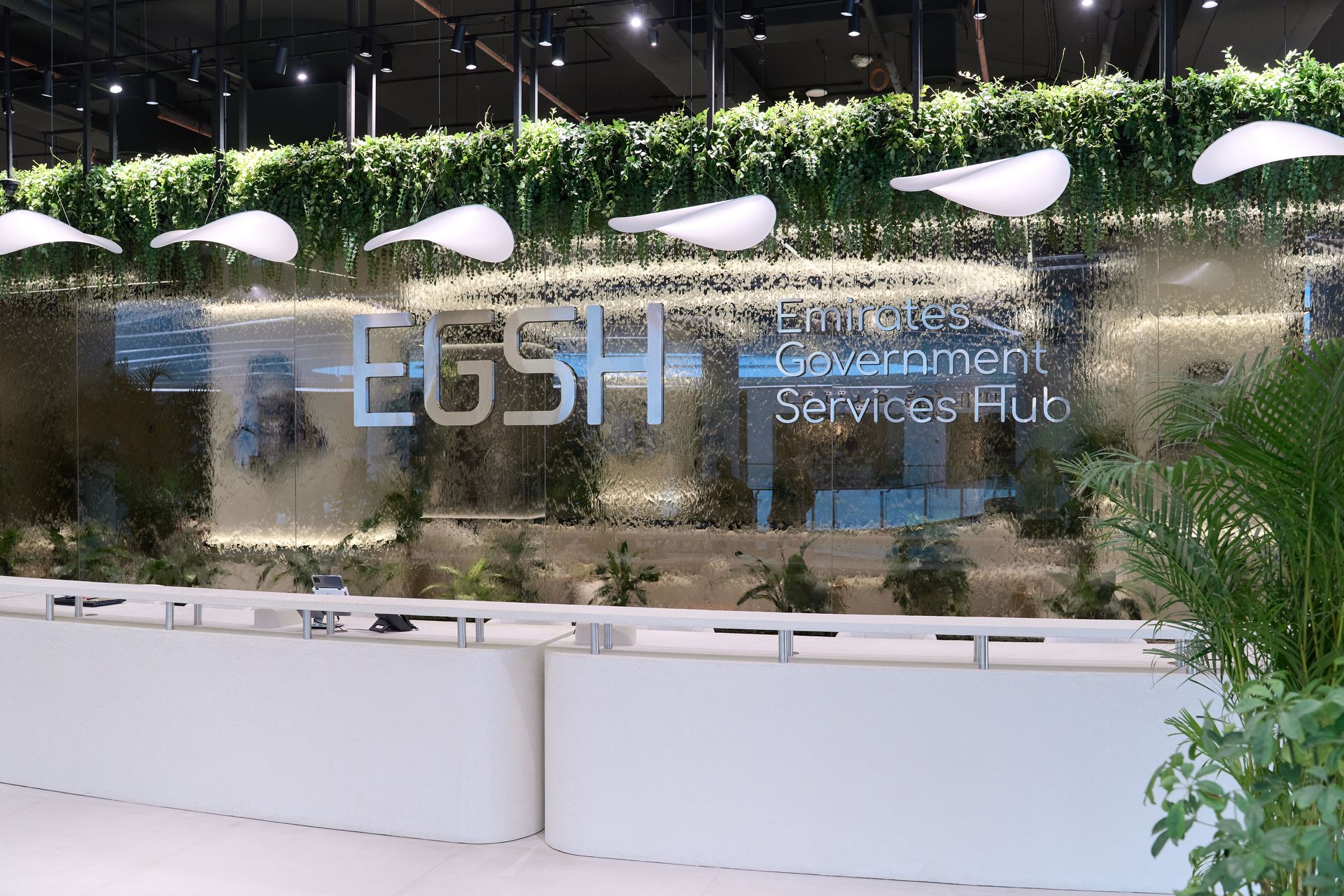Ejari Registration, Renewal & Cancellation in Dubai
Every tenancy contract in Dubai must be registered with the official Ejari system, introduced by the Real Estate Regulatory Agency (RERA) and operated under the Dubai Land Department (DLD). To ensure that Ejari registration in Dubai is completed smoothly, it is important to understand the government requirements and the roles of the parties involved in the procedure.
What are the key features of this process? Who is responsible for registering Ejari, and at what stage of the process does this occur? How can it be done correctly, and what should you do if an existing tenancy contract needs to be amended or cancelled? This article provides clear answers to these questions.
EGSH assists with lease registration and renewal Dubai through the official Ejari system, ensuring compliance with DLD requirements.
What is Ejari?
Ejari (Arabic for “my rent”) is the official tenancy contract registration system introduced by the Real Estate Regulatory Agency (RERA) under the Dubai Land Department (DLD). The system was launched on 14 March 2010 under Law No. 26 of 2007, to make tenancy agreements transparent, standardised, and legally enforceable across Dubai.
Before Ejari, many rental agreements were informal or lacked a standard format, which led to ambiguity in landlord–tenant relationships and frequent disputes. Ejari was created to make all tenancy contracts subject to a unified, regulated format, recorded in a government-maintained system.
Since its launch, Ejari has become mandatory for all residential and commercial leases in Dubai. Although no official statistics are published on the total number of contracts each year, data from the Dubai Electricity and Water Authority (DEWA) reveal that, in 2023 alone, more than 742,000 new and renewed contracts were recorded, with the cumulative total exceeding 3.5 million by the end of the year.

Register Your Ejari with VIP Service and No Queues
You can stop by EGSH during working hours without an appointment or book your visit at a time that suits you best.
Address
Art of Living Mall, Al Barsha 2, Dubai
Operating hours
Monday — Saturday: 9:00 am — 5:00 pm
Sunday: Closed
Why is Ejari Important?
Ejari is not just a formality. It is the legal foundation of every tenancy contract in Dubai. Without it, tenants and landlords cannot access essential government services or enforce their rental agreements, from connecting utilities to applying for residence visas.
Ejari registration is required to:
- Connect utilities: DEWA activates electricity and water only after an Ejari certificate is issued.
- Apply for residence visas: Tenants must provide Ejari for family sponsorship and visa procedures.
- Ensure legal protection: Ejari makes tenancy contracts enforceable in case of rental disputes.
Overall, Ejari regulates the rental market by preventing unlawful rent increases and ensuring compliance with the official rental index, thereby protecting the rights of tenants and landlords.
Who Registers Ejari?
According to current DLD regulations, Ejari can be registered by:
- The tenant (lessee) or their authorised representative with a valid Power of Attorney (POA).
- The landlord (owner) or their authorised representative (with a valid POA).
- Licensed real estate management companies with DLD system access.
In practice, tenants typically initiate registration for residential properties, while landlords or property managers often handle registration for commercial units.
It is important to note that only parties with a valid tenancy contract and proper authorisation are eligible to complete the process; applications without correct authority or documentation will be rejected.
Channel Eligibility
1. Dubai REST app/DLD website (Ejari system).
Tenants and landlords (or authorised representatives) can file digitally. Login is available via UAE Pass (recommended) or by using an Emirates ID/residence visa number.
2. Real Estate Services Trustee Centres.
Tenants, landlords, or authorised representatives submit in person (POA required when acting on behalf of others).
3. Company/property manager access.
Licensed management companies and building owners authenticated by DLD can submit via their back-office credentials.
Required Documents for Ejari Registration
Provide the Following Documents Depending on the Submission Channel
Online (Dubai REST app/DLD website)
Copy of the unified tenancy contract (PDF/clear scan). UAE Pass for login (recommended), or Emirates ID/residence visa number. POA details if filing on behalf: POA number if issued in Dubai; scanned POA when issued outside Dubai.
Real Estate Services Trustee Centre
Original unified tenancy contract. Tenant’s valid Emirates ID (physical card). POA if acting on behalf: POA number if issued in Dubai; scanned POA if issued outside Dubai. For commercial leases: a copy of the tenant company’s trade licence.
Licensed property managers/company back-office
Unified tenancy contract (copy) and tenant’s Emirates ID details. Authorisation documents/credentials for the submitting company or property manager (as per DLD access). POA if acting on behalf of the landlord/owner.
General Notes
DLD may request additional documents in specific cases (e.g., court orders, amendments, and corporate authority clarifications).
Government-Authorised Trustee Services for Real Estate Transactions
Why Choose EGSH for Ejari Tenancy Registration
VIP Service
Personal assistance and priority processing with no queues.
Affordable Fees
Official government rates with transparent, fixed pricing.
All Services in One Place
Comprehensive range of UAE government services under one roof.
One-Visit Completion
Most procedures are completed in a single visit to the centre.
How to Register Ejari in Dubai
Depending on the registration channel you choose—online via the Dubai REST app or DLD website, through a Dubai Real Estate Trustee Services, or via a licensed property manager/company—the process and timings may differ slightly. Here’s how it works:
Online (Dubai REST App / DLD Website)
Steps:
- Sign up or log in on the Dubai REST app or DLD website.
- Select “Register Ejari”.
- Upload the unified tenancy contract and supporting documents.
- Pay the official fees via Noqodi, card, or another accepted method.
- Receive the Ejari certificate by email once approved.
If you need an additional copy later for utilities, visas or compliance, you can request an Ejari certificate reprint.
Processing time: immediate, provided all documents are correct and complete.
Note: log in with UAE Pass (recommended). If you do not have a UAE Pass, you can register using your Emirates ID or residence visa number. Alternatively, complete the process at a Real Estate Services Trustee Centre.
Real Estate Services Trustee Centre (In Person)
Steps:
- Visit EGSH or another Real Estate Services Trustee Centre with the original documents.
- Submit the tenancy contract, Emirates ID, and POA (if acting on behalf).
- An authorised officer reviews the file and enters details into the Ejari system.
- Pay the official fees at the counter.
- Receive the Ejari certificate (issued digitally) and the updated tenancy record.
Processing time: approximately 7 minutes, excluding any waiting time.
Note: This method is beneficial for those without a UAE Pass or for clients who require professional verification of documents and a fast-track submission through an authorised centre.
Licensed Property Managers/Company Back-Office (DLD System Access)
Steps:
- Sign in via the DLD back-office credentials (for authenticated owners/managers).
- Select the relevant tenancy registration service.
- Upload the contract and enter the tenant’s Emirates ID details.
- Settle the official fees (Noqodi/card).
- Issuance of the Ejari certificate to the registered parties’ contacts.
Processing time: typically immediate after successful submission (subject to system verification).
Note: Access to this channel is restricted to DLD-authenticated building owners and licensed management companies.
Visit EGSH for VIP Service Without Queues
You can stop by EGSH during working hours without an appointment or book your visit at a time that suits you best.
Address
Art of Living Mall, Al Barsha 2, Dubai
Operating hours
Monday — Saturday: 9:00 am — 5:00 pm
Sunday: Closed
Ejari Renewal in Dubai
Tenancy contracts in Dubai are typically signed for one year, and the Ejari registration must be renewed each time the lease is extended. Ejari renewal in Dubai ensures that the new contract is legally recognised and remains valid.
Under Dubai Law No. 26 of 2007, as amended by Law No. 33 of 2008, if the landlord or tenant wishes to amend any terms of a lease (including a change in rent) for renewal, they must notify the other party at least 90 days before the lease expiration. Should the landlord not issue a written objection by the expiry date, and the tenant continues to occupy the property, the lease is considered renewed under the same terms or (if shorter) for one year, with all existing conditions.
Required documents: updated tenancy contract; tenant’s valid Emirates ID; POA, if applying on behalf of the tenant or landlord.
Where to renew:
- Dubai REST app or DLD website (online).
- Real Estate Services Trustee Centres, such as EGSH.
- Licensed real estate management companies using the Ejari system.
Steps to renew: Submit the updated tenancy contract and required documents online or at a Trustee Centre. Pay the official fees. Receive the updated Ejari certificate confirming the new tenancy term.
Key Points To Remember When Renewing Ejari
Apart from the basic renewal procedure, there are a few important details that tenants and landlords should be aware of.
-
Without a valid Ejari renewal, tenants may face difficulties updating or maintaining utility accounts, such as those for DEWA, internet, and telecommunications.
-
When you renew the tenancy contract, you need to provide fresh post-dated cheques covering the new rental term. Any cheques issued under the previous contract must be either formally cancelled (returned to you) or destroyed; otherwise, the landlord may attempt to cash them under the old contract.
-
Any changes to the lease terms should be reflected in the registered tenancy contract (typically upon renewal) so that they can be relied upon in proceedings at the Rental Disputes Centre (RDC). Side letters or addenda should be incorporated into the updated registered contract.
-
Landlords may increase rent only within the limits set by the RERA Rental Index Calculator. Any increase beyond these limits can be legally challenged before the RDC, even if the contract has already been signed.
-
Rental disputes in Dubai are resolved by the RDC under the Dubai Land Department. Its rulings have the force of court judgments, are enforceable through the Execution Department, and are typically resolved faster than standard court proceedings.
Ejari Сancellation in Dubai
When a tenancy contract expires or is terminated, it must be officially cancelled in the Ejari system to close the record and allow registration of a new lease. In practice, Ejari cancellation in Dubai is also required to properly disconnect or transfer utilities and prevent billing issues under the tenant’s name.
Where to cancel:
- Dubai REST app or DLD website (online).
- Real Estate Services Trustee Centres, such as EGSH.
- Licensed real estate management companies with access to the Ejari system.
Required documents: original standard tenancy contract (if still valid), tenant’s valid Emirates ID, POA, if applying on behalf of the tenant or landlord.
Steps to cancel:
- Submit the required documents online or at a Trustee Centre.
- Application details are reviewed and verified by the DLD system.
- Pay the applicable fee if cancelling at a Trustee Centre.
- Receive confirmation of cancellation.
Notable Points About Ejari Cancellation
Although the process itself is clear-cut, there are several practical considerations that tenants and landlords should be aware of to avoid complications.
- Ejari cancellation is required to disconnect or transfer utility services such as DEWA, internet and telecommunications. Without cancellation, bills may continue to accrue under the tenant’s name.
-
Before Ejari cancellation, all outstanding rent and utility payments must be cleared. The landlord or management company usually provides a No Objection Certificate (NOC) confirming settlement and authorising the cancellation.
-
Tenants should make sure that all previously issued rent cheques are returned or cancelled. Otherwise, landlords may still have the right to deposit them, even after the lease has ended.
-
Should one party refuse to cooperate with cancellation or withhold cheques, the case can be referred to the Rental Disputes Centre (RDC). RDC rulings carry the force of court judgments and are enforceable in the same manner as court judgements.
-
While there is no fixed statutory deadline, the DLD expects cancellation to be completed immediately after the expiry or termination date. Delays can block the registration of a new tenancy and may result in additional costs.
Register, Renew, or Cancel Your Ejari at EGSH
- Authorised by the DLD
- Completed in one visit
- VIP service without queues
- Official DLD-approved fees
Ejari Fees & Processing Time
Before submitting your application, you may check the latest official charges through the service fees indicator inquiry Dubai service. The DLD sets standard government fees for Ejari services. Charges vary slightly depending on whether the application is completed online or at a Real Estate Services Trustee Centre. Below is a summary of official Ejari fees in Dubai and the average processing time for each service.
Registration
Online via Dubai REST app or DLD website. Fee: AED 100 + AED 10 Knowledge fee + AED 10 Innovation fee. Processing time: Immediate.
At a Trustee Centre. Fee: AED 120 + AED 95 service partner fee + VAT. Processing time: Approximately 7 minutes (excluding waiting time).
Renewal
Online. Fee: AED 100 + AED 20 fees. Processing time: Immediate.
At a Trustee Centre. Fee: AED 120 + partner fee. Processing time: Approximately 7 minutes.
Cancellation
Online. Fee: Free. Processing time: Immediate
At a Trustee Centre. Fee: AED 40 + VAT. Processing time: Approximately 4 business hours
According to Dubai regulations, the Ejari government fee can be paid by either the tenant or the landlord, as agreed upon in their contract. In practice, the tenant usually makes the payment.
However, as there is no binding rule on this matter, to avoid disputes, legal experts recommend clearly stating in the tenancy agreement who is responsible for covering the Ejari fee.
Platforms to Access Ejari Services
To make tenancy procedures accessible to all residents and businesses, the DLD provides multiple official channels for Ejari registration, renewal, and cancellation. There are four primary methods to access Ejari services.
- Dubai REST app (iOS and Android): The leading platform for real estate services in Dubai. Through REST, users can register and renew Ejari, view tenancy data, and access other DLD services. It is linked to UAE Pass, ensuring secure digital identity verification.
- Dubai Now app: A one-stop government app that integrates over 130 Dubai government services from various departments. It allows users to manage Ejari alongside other essential services, such as bill payments, driving license renewals, and visa services.
- Dubai Land Department website (Ejari system): The official online portal where Ejari services can be completed directly.
- Real Estate Services Trustee Centres: Authorised offices, such as EGSH, where Ejari can be registered, renewed, or cancelled in person.
Which Method is Best?
The safest and most reliable legal method to process Ejari is through Real Estate Services Trustee Centres, such as EGSH. At Trustee Centres, all documents are verified by authorised officers. The application is submitted directly into the DLD system, and you receive the Ejari certificate immediately, with no risk of rejection.
Digital platforms, such as the Dubai REST app, the DLD website, or the Dubai Now app, are convenient if you already have a valid UAE Pass and a pre-tenancy contract in place. They allow you to complete registration or renewal online.
However, online applications may be rejected due to errors in document scans, missing signatures, or mismatched landlord details. Real Estate Services Trustee Centres remain the most reliable option for applicants who need immediate issuance.
Common Mistakes and How to Avoid Them
01
Submitting Incorrect Documents
Unsigned tenancy contracts, mismatched landlord or tenant names, missing Emirates IDs, or lack of ownership or POA proof. Always prepare all required documents in advance and verify the spelling and validity of all details.
02
Entering Wrong Contract Details
If the dates in your contract, the owner’s title deed, or the tenant ID do not match the entries in the Ejari form, the system may reject the application. Ensure consistency across all documents before submission.
03
Delaying Registration
Submitting your Ejari too close to the move-in or renewal date can leave no time for corrections and may lead to penalties. Complete the registration immediately after signing or renewing the tenancy contract.
04
Overlooking the Fee Structure and Payment Receipts
Paying the wrong amount or losing the receipt can delay verification. Always confirm the official DLD fee before payment and keep all receipts securely for future reference.
What Happens if You Do Not Register Ejari?
If you do not have Ejari, a lease in Dubai is not valid. Failing to register your tenancy contract in the Ejari system can have serious consequences. DEWA will not connect your electricity or water supply, and your visa application or family sponsorship request may be rejected as a result.
In the event of disputes, neither tenants nor landlords can rely on an unregistered contract in court, leaving them with no legal recourse. Non-compliance may result in penalties, including the inability to access related services or potential fines, as outlined in DLD rules.
Note: best practice is to register promptly after signing (commonly within 30 days in market practice).

Register Your Ejari with VIP Service and No Queues
You can stop by EGSH during working hours without an appointment or book your visit at a time that suits you best.
Address
Art of Living Mall, Al Barsha 2, Dubai
Operating hours
Monday — Saturday: 9:00 am — 5:00 pm
Sunday: Closed
Ejari for Commercial Properties
The Ejari system is not limited to residential leases. Under Dubai law, all commercial tenancy contracts, including those for offices, retail shops, warehouses and industrial units, must also be registered with Ejari. Without a valid official copy of an Ejari certificate, businesses cannot renew or obtain a trade licence, connect utilities or use the lease as evidence in legal proceedings.
All landlords and tenants of commercial properties in Dubai are required to register the lease at the beginning of the contract. Renewal is required each time the tenancy is extended, and cancellation must be completed when the contract ends or is terminated. The obligation applies to both individual landlords and corporate property owners.
Important Details to Consider
- The commercial lease must be in the standard unified tenancy format recognised by the Dubai Land Department.
- All documents must show the correct trade licence details of the tenant company and valid ownership documents or POA for the landlord.
- For partnerships or branches, authorised signatories must be clearly identified and provide proof of authority.
Frequent Errors in Commercial Ejari Filings
- Missing trade licence information: If the tenant’s trade licence is not attached or has expired, the Ejari registration will be rejected. Always renew trade licences before registering or renewing Ejari.
- Incorrect landlord or company details: names must exactly match those on Emirates IDs, trade licences, or title deeds. Any variation will lead to system rejection.
- Failure to cancel an old Ejari: A new commercial lease cannot be registered until the previous Ejari record is cancelled correctly. Ensure cancellation is completed before applying again.
- Late registration: Delays may prevent a timely trade licence renewal. Register Ejari immediately after signing the lease to avoid business interruptions.
By handling the process through an authorised Real Estate Services Trustee such as EGSH, businesses avoid these issues. All details are verified against DLD requirements to ensure that the Ejari certificate is issued promptly and is valid for licensing, utilities, and dispute resolution purposes.
How EGSH Assists with Ejari
For many tenants and landlords, Ejari looks straightforward until a small error causes the application to be rejected or delayed. That’s where EGSH makes the difference. As a government-authorised Real Estate Services Trustee accredited by the DLD, we handle every step in one place—no running between different offices and no wasted time.
At our centre, clients get on-site registration, renewal, and cancellation, with all tenancy contracts and POA documents checked for compliance before submission. Processing is fast, certificates are issued digitally, and support doesn’t stop at Ejari. We also assist with related needs, such as licensing, DEWA activation, and visa applications. In short, EGSH saves you time while ensuring your Ejari is legally valid from the start.
Visit Our Centre
Phone
Working Hours








































